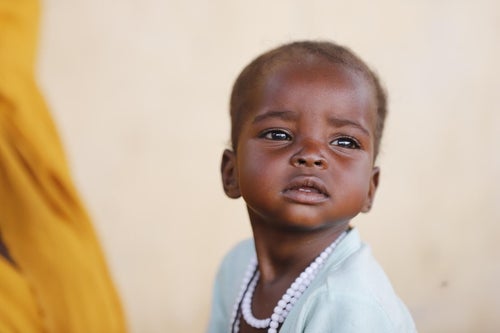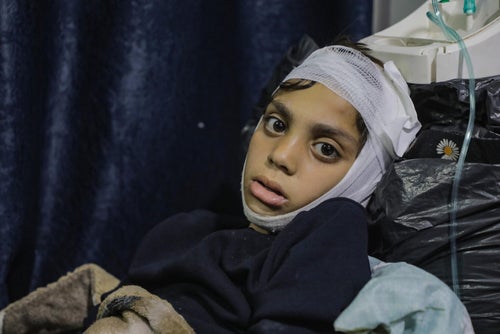Every day, childhoods are being shattered by ongoing conflict, disease outbreaks and natural disasters. From a man-made famine and the world's largest child displacement crisis in Sudan to children enduring over a decade of war in Yemen and Syria, millions of young lives are bearing the weight of these crises.
Hundreds of emergencies are unfolding around the world, and devastatingly, most remain unreported by the media. This lack of coverage leaves them underfunded despite research showing a strong link between media attention and emergency response funding.
Here are seven urgent crises that demand our attention.
450 m
In 2023, over 450 million – nearly 1 in 5 children – live in or have fled a conflict zone.
412
In 2023, UNICEF responded to 412 emergencies in 107 countries.
Childhoods lost in Yemen
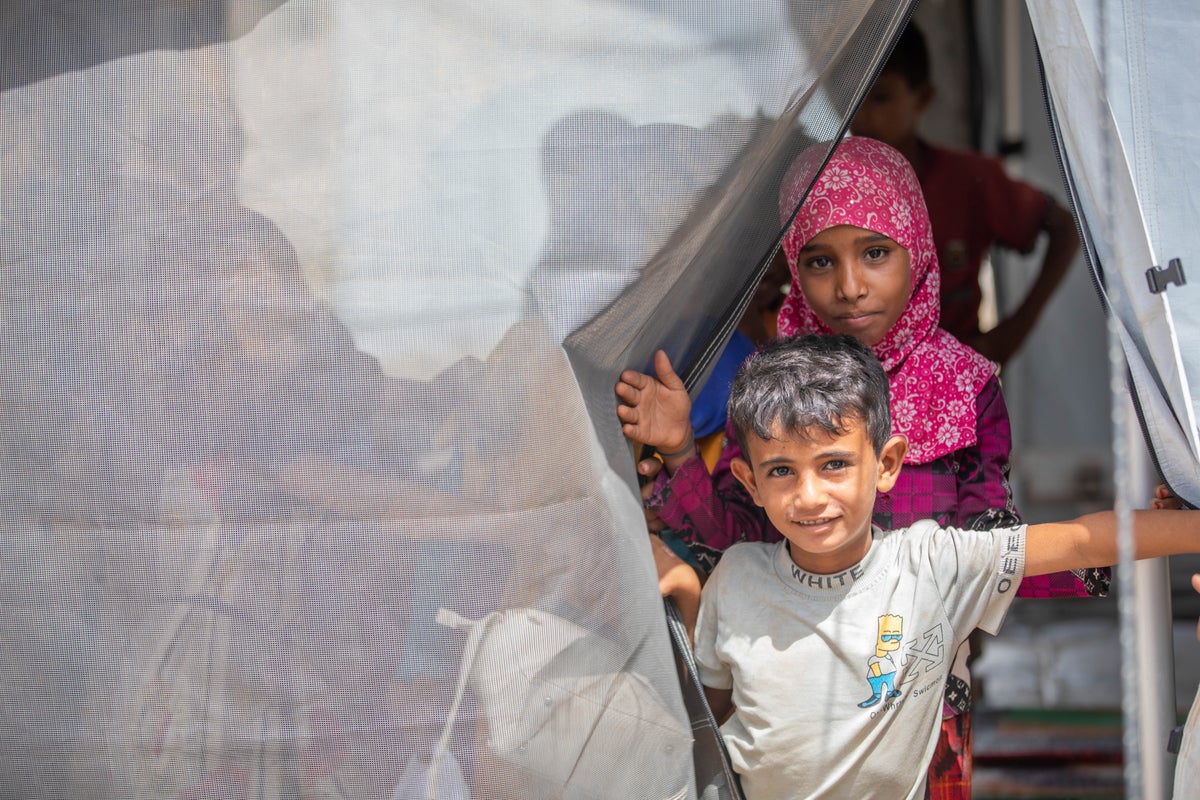
For over nine years, Yemen’s children have endured ongoing violence, loss, hunger, and displacement. Tragically, since the conflict escalated in 2015, more than 11,500 children have been killed or injured, while thousands more have been recruited into armed groups.
With over 82 per cent of Yemen’s population living in poverty, basic services like hospitals, schools and sanitation have collapsed. Millions of children and their families lack access to adequate food, clean water, healthcare and education. Amidst these challenges, girls face heightened risks of child marriage and are often the first to miss out on education.
More than 4.5 million school-aged children do not attend schools, and those who do face overcrowded classrooms and overburdened and unequipped teachers.
UNICEF works alongside our partners to provide lifesaving nutrition and healthcare and safe water. To rebuild damaged schools and establish safe learning spaces while providing education on mines and explosive remnants of war.
Learn more about what is happening in Yemen.
Children being pushed to the brink in Haiti
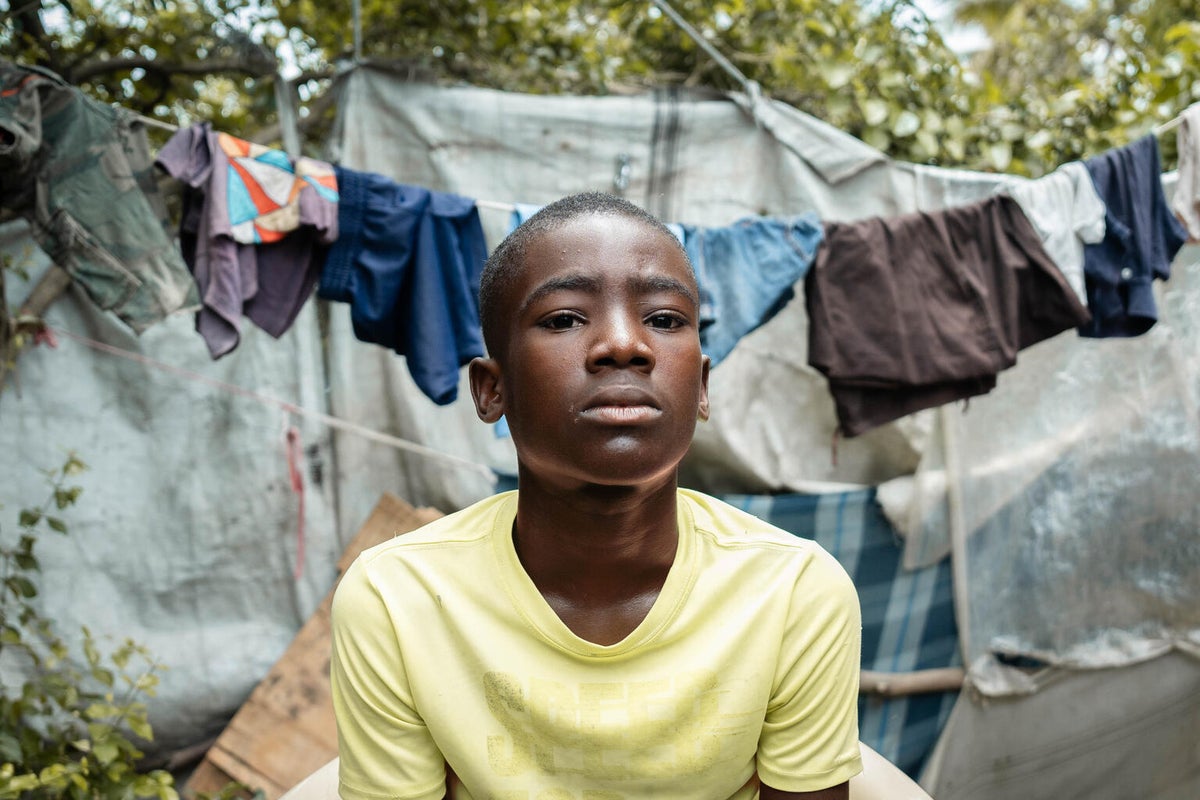
The number of internally displaced children in Haiti has increased by an estimated 60 per cent since March – the equivalent of one child every minute.
For decades, Haiti’s children have faced immense challenges, including natural disasters, disease outbreaks, political instability, gang violence, poverty and mass displacement. This year, they have once again been pushed to the brink as extreme violence and unrest sweep through Haiti’s capital, Port-au-Prince.
After enduring years of political turmoil and economic crisis, a staggering 90 per cent of Haiti’s population now lives in poverty. Over 3 million children urgently need humanitarian assistance. Tragically, without means of survival and protection, some children are being forced to join one of the armed groups. In May 2024, the United Nations estimated that 30 to 50 per cent of armed group members are children.
Despite the situation, UNICEF remains on the ground, providing lifesaving support to children and their families.
Read more about what is happening in Haiti and how UNICEF is helping.
Crisis on top of crisis in Lebanon
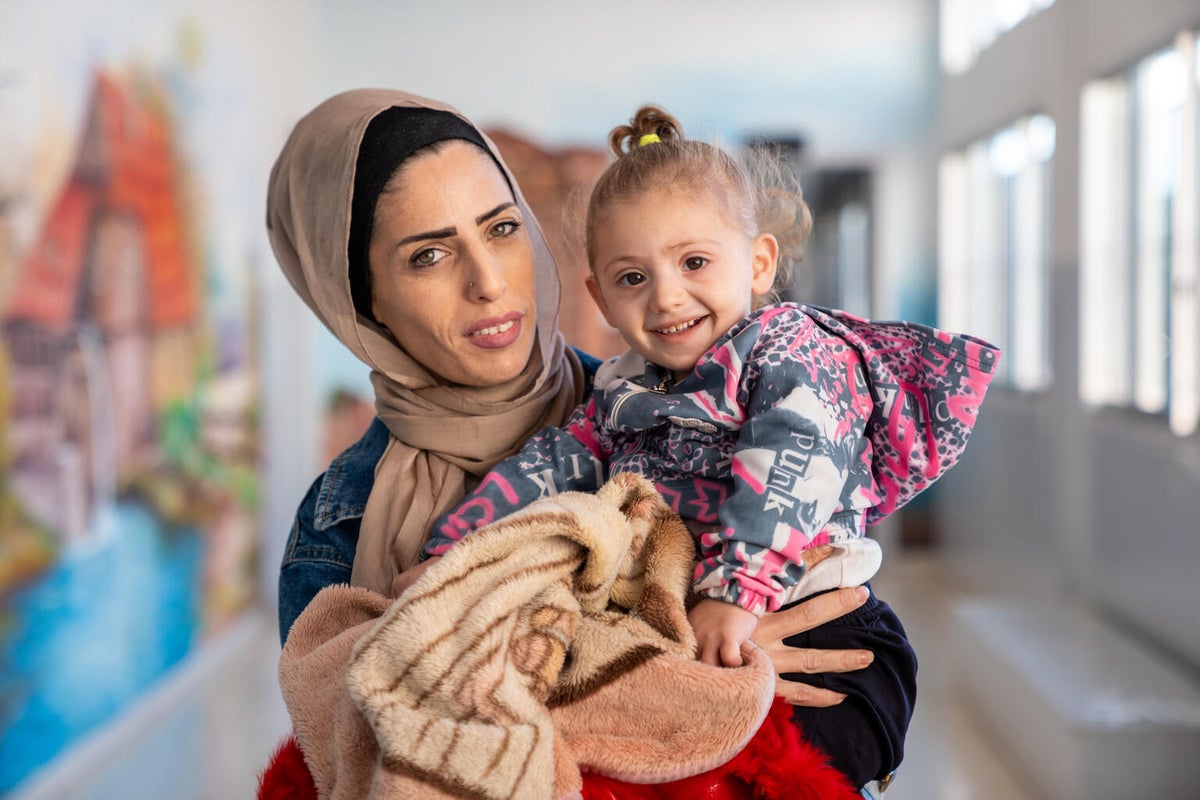
In Lebanon, high unemployment is forcing many children to leave school early to help support their families. This dire situation has given rise to an education crisis. Plus, more than 60 per cent of children now face food poverty, while the health system teeters on the brink of collapse due to years of being overstretched.
Adding to the complexity, conflicts in neighbouring countries have driven an influx of Syrian and Palestinian refugees seeking safety within Lebanon’s borders. As tensions escalate in south Lebanon, families confront an uncertain future.
Alongside our partners, UNICEF is providing safe drinking water, lifesaving nutrition and healthcare, and access to education, all while keeping children safe from harm. We will continue to respond to the cross-border conflict as the situation evolves.
Learn more about what is happening in Lebanon
An education crisis in the Democratic Republic of Congo
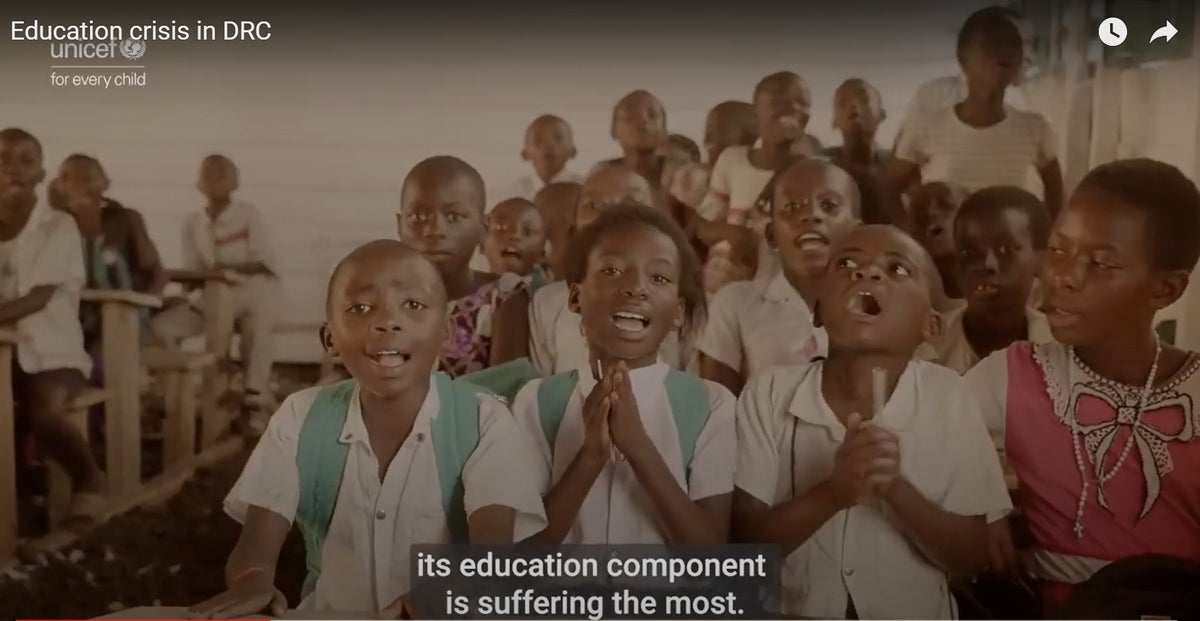
Education crisis in DRC
Since 2022, renewed violence, escalating conflict, climate-related disasters and disease outbreaks have upended the lives of millions of children, leaving families in turmoil. Children are being killed, maimed, abducted and recruited into armed violence, with a surge in gender-based violence adding to their suffering.
Adding to these threats, children and their families are grappling with climate-related disasters and disease outbreaks, including cholera and measles. These overlapping crises have triggered a mass displacement emergency with spiralling humanitarian needs.
For over 60 years, we have been in the Democratic Republic of Congo, delivering lifesaving services and supplies to children in desperate need, including clean water, health and nutrition, child protection, and education.
An entire generation of Myanmar’s children in desperate need
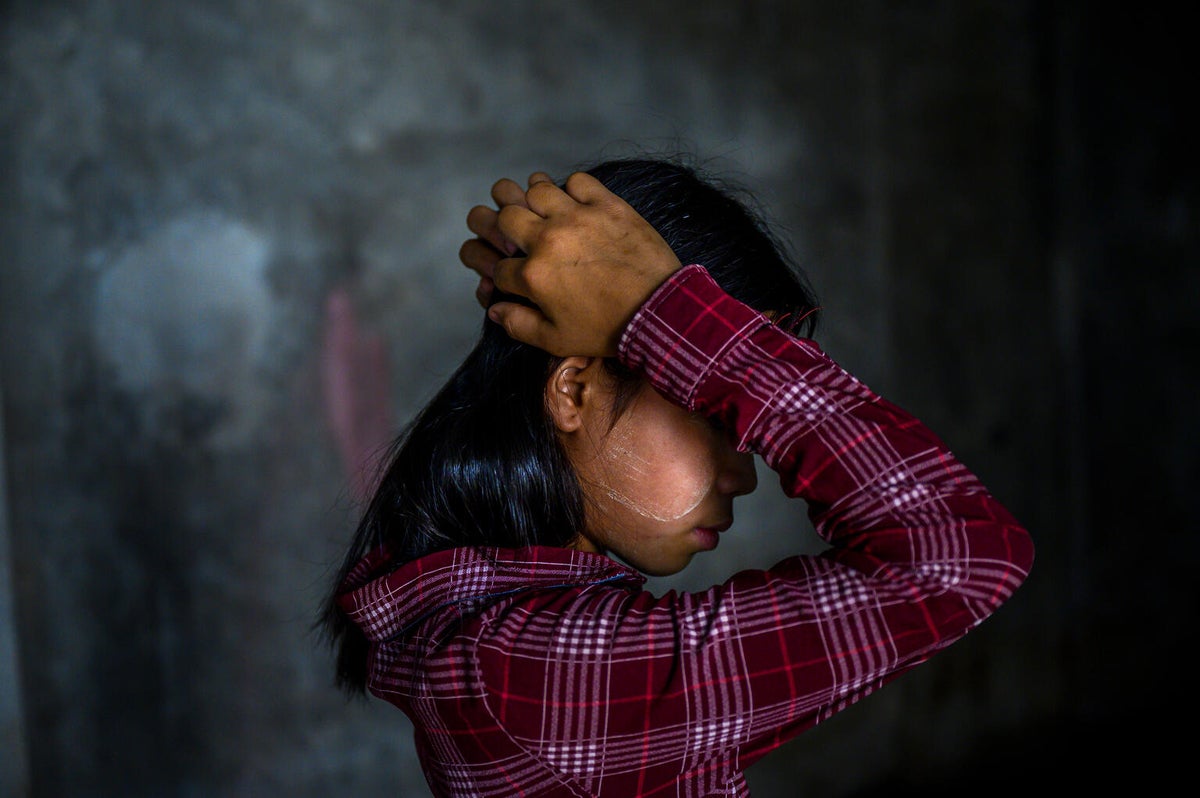
Teetering on the edge, Myanmar’s children bear the weight of ongoing conflict, mass displacement, natural disasters and the disruption of critical services, including health and education. This dire situation leaves 6 million children in urgent need of humanitarian assistance.
Since 2021, violence has surged across the country, exposing more Myanmar children than ever to grave risks: forced recruitments, child marriages, abuse, displacement and a lack of access to vital services. The rise in landmine incidents and road closures has further exacerbated the situation, leading to shortages of food and fuel for children and their families in hard-to-reach places.
UNICEF has been in Myanmar for over 70 years, continuously adapting our efforts to meet the growing needs of children in crisis. From providing essential child protection services and lifesaving healthcare to ensuring access to safe water and education, we will continue to reach vulnerable children in need, no matter what.
The biggest child displacement crisis in the world in Sudan

Since April 2023, a relentless civil war has shattered childhoods. The catastrophic combination of violence, conflict, displacement and restricted humanitarian access has led to a man-made famine in a camp sheltering hundreds of thousands of displaced people in Sudan’s North Darfur region.
Sudan is also experiencing the biggest child displacement crisis in the world, with millions forced to flee their homes in search of safety, leaving a staggering 90 per cent of the school-aged students without access to formal education. Even before the conflict escalated, Sudan grappled with a humanitarian crisis fuelled by disease outbreaks, climate emergencies, and economic and political stability.
With over 14 million children in need, UNICEF is working with our partners to deliver safe drinking water, lifesaving healthcare and nutrition, child protection services, and psychosocial support. We have established safe learning spaces and continue to advocate the immediate reopening of schools where safe and possible.
Learn more about what is happening in Sudan.
The forgotten children of Central African Republic

In July 2024, a sombre milestone was reached: a decade of conflict has devastated the lives of 3 million children in the Central African Republic (CAR). These past years has seen childhoods shattered by conflict, disease outbreaks and displacement. Gender-based violence remains a critical issue, and CAR is grappling with a refugee crisis as families seek refuge from civil war in neighbouring countries.
Recent data released in June 2024 paints a distressing picture for children living in CAR.
- 1 in 2 children lack access to healthcare.
- 64 per cent of the population lack access to safe water.
- 9 in 10 children under two years do not have enough to eat.
- 1 in 4 children are unable to school.
- 2.8 million vulnerable Central Africans are estimated to require more than humanitarian assistance alone to restore their wellbeing.
Despite the severity of the situation, UNICEF continues to work alongside our partners to deliver lifesaving healthcare and nutrition, and clean water. We support children in accessing education and safe spaces, and we’re working to keep children safe from harm.
Donate Where the Need is Greatest
Help UNICEF to be there for children wherever the need is greatest, no matter what.
Related articles
Stay up-to-date on UNICEF's work in Australia and around the world








